A REMINDER TO SISTERS (All Women) AS TO WHY WE MUST VOTE
Lezli Baskerville, Esquire, President & CEO NAFEO 2024 Women’s History Month Speech Before the United States Department of Agriculture “Valiant Women of the Vote: Refusing to be Silenced”
I am ecstatic that the First HBCU alumna will soon be nominated to become President of the United States & Head of the Free World. Built on my 40 years as an active and involved Justice Janissary and campaign designer, leader, manager, and platform plank writer and editor, and one who as President & CEO of the National Black Leadership Roundtable, led in organizing 24 races for US House of Representatives that won, 10 US Senate races that won, and also ran or played critical roles in many state legislative, and mayoral races, and congressional and state legislative policy campaigns, and served on the Executive Teams and played other central roles in two presidential campaigns, I was humbled to share the following historic context regarding the women’s vote with those in the USDA Farm Production and Conservation Business Center in 2021 and to prophesize a Kamala Harris campaign for the Presidency. The topic was “Valiant Women of the Vote: Refusing to be Silenced.” It helps to contextualize the importance of the Harris presidential race and Harris presidency. Because she is a proud HBCU alumna, her candidacy and service as POTUS is of signal importance for the future of HBCUs, and for increasing diversity in higher education despite the Supreme Court decisions in Students for Fair Admissions v. Harvard University and Students for Fair Admissions v. University of North Carolina Chapel Hill.
I bring to this discussion nearly four decades as a Constitutional Justice attorney, a former voting rights litigator, a lead counsel in the 1982 congressional reauthorization of the Voting Rights Act, and service as the co-founding member of the National Congress of Political Black Women, along with my dearly departed and beloved Attorney Shelia High King whose daughter I am privileged to love as my Goddaughter. I also bring to this exchange my service at the helm of NAFEO, the 52-year-old membership and advocacy association of the 106 HBCUs and 80 Predominantly Black Colleges and Universities, their presidents and chancellors, students and 7,000,000 active and engaged alumni.
Central to the mission of NAFEO is tearing down barriers to equal educational opportunity and opening wide the doors of opportunity through avenues such as HBCUs and PBIs– the quintessential equal educational opportunity institutions. As a champion for HBCUs a cornerstone of the NAFEO agendas is (1) restoring, strengthening and maintaining the Voting Rights Act, and (2) “Valuing Our Votes, and Voting Our Values” because NAFEO Nation realizes as do most within the sound of my voice, that voting is the most important action in which anyone can engage, in a participatory democracy.
Voting is the single most important means of wielding power—especially for those of least advantage—those who have traditionally been under-served or ill-served by the systems in America. It is the most important act for closing of the achievement gap, closing the wealth gap, closing the African American male/female education gender gap; ameliorating the health disparities; ensuring the survival and progress of the Nation’s Historically Black Colleges and Universities and MSIs, and for otherwise attaining a just, peaceful, equitable, sustainable. America.
My thoughts about Valiant Women of the Vote Refusing to be Silenced are in the context of our Nation having celebrated the 100th Anniversary of the 1920 passage of the Women’s Right to Vote in August 2020. They are in the context of this being the United Nations-designated Decade of People of African Descent; of this being the Decade of the Black Female Voter; and amid an intensifying Black Lives Matter Movement which is engaging a richly diverse group of persons in a movement to end white supremacy, racism, hate crimes and racial, ethnic, economic, judicial, and other injustices in America.
My thoughts are in alignment with the National Women’s History Month theme, “Valiant Women of the Vote – Refusing to Be Silence,” a theme that I find odd for such times as these. To unpack this theme, I would need far more than 20 minutes just to explore the meaning of valiant in the context of women voters and then to determine whether in the context of the 2020 US elections, the 50% of White female voters who voted for a candidate who ran on an agenda of splintering America along the lines or race, ethnicity, national origin, maintaining the White heteropatriarchy, and keeping out of America persons of color, Muslims persons from Haiti, El Salvador, and African nations.
The candidate for whom 50% of White female voters cast their ballot separated children seeking admission to our country in encampments with little sanitation separated from their parents, guardians, and other loved ones and with no or little understanding of English. The candidate declined fund the Supplemental Nutrition Assistance Program for American Children, for political purposes.
Could someone who voted for a candidate whose record reflected these things, be a valiant voter?
Americans cared greatly about the outcome of the 2020 elections. More people voted in this election than in any election in American history. And more people cast votes for President of the United States in 2020 than in any other presidential race. Women care. They fought. They showed up. They got millions of others to show up and vote. Valiant Black Women of the Vote who refused to be silenced, and worked strategically and indefatigably were the margin of victory not only in the presidential race, but in so many races around the country. The 2020 election was about the soul of our country. The valiant Women of the Vote who refused to be silenced, were victorious.
In the aftermath of the elections of 2020, and as the dust has settled, our discussions among valiant women voters must be about our democracy, our soul, our safety, our health, our sustainability, our freedoms, our democracy, our economic well-being, and justice. Our realizing our Egalitarian Ideal and becoming our best selves as a pluralistic nation, a strong, caring, just, peaceful, inclusive, excellent, diverse nation working together to end White supremacy and close the education, employment, entrepreneurship, economic, wealth, health, sustainability, and justice gaps.
Now, Valiant Women of all parties, races, ethnicities, religions, self-definitions, preferences, stripes, socio-economic strata, and all leanings, must work together on the priority policies and programs to get America on track and keep her there.
The elections of November 2020 occurred amid the taking of the 2020 Decennial Census, increased hate crimes, white supremacy, the worst health pandemic in decades that threatened the stability of not only America, but the world. It laid bare for many who had not realized the depth of the racial and ethnic health disparities at home and abroad, the gulf between Black, Brown and Native health, health care, and health providers; and graphically demonstrated the racial, ethnic, and gender employment and wealth gaps.
As Valiant Women of the Vote move collectively across all policy divisions, leaders of diverse Valiant Women of the Vote must meet in conclave to discuss ways of ending the 50-year pattern that has far too many of our White Sister voters choosing to vote to stay in the White hierarchy rather than choosing to lend their potent voices to the battle for our families, our communities, economic justice, closing the persistent disparities that are anchored in racial/ethnic and gender discrimination. Our strength as Valiant Women voters comes from what we can negotiate for America as richly diverse women with different beliefs but a shared belief in our democracy and the power of women united who refuse to be silenced.
We must have this meeting soon to honor Frances Ellen Watkins Harper an abolitionist, suffragist, poet, teacher, public speaker, writer, reformer, co-founder of the National association of Colored Women’s Clubs, and importantly for those of you in Ag, a farmer who made butter for the market to provide for her four children after the death of her husband.
In an 1866 speech at the National Women’s Rights, Convention in New York, Harper captured the essence of the duality if Black women in the predominantly White female suffragist movement in a speech titled, “We are All Bound up Together:”
In the speech, Harper called on her fellow attendees to include African American women in their fight for suffrage. She emphasized that Black women were facing the double burden of racism and sexism. She urged the women’s suffrage movement to include suffrage for African Americans as well. In response to Harper’s appeal, the Convention organized the American Equal Rights Association to work for suffrage for both African Americans and women. When Black women urged the American Equal Rights Association to support the Fifteenth Amendment to the United States Constitution, granting Black men the right to vote, the Association splintered and shortly after its founding the organization soon split over the decision of whether to support the Fifteenth Amendment, granting African American men the right to vote.
Frances Ellen Watkins Harper A Valiant 19th Century Woman of the Vote—Refusing to be Silenced.
Valiant Women of the Vote Today must meet in conclave to have an honest difficult conversation to bring valiant women of the vote of all persuasions together around the most pressing issues of the day. And to help White Valiant Women better understand that often they subject WOC to the same types of racial and ethnic injustices, stereotyping, and discrimination as do their husbands, fathers, and sons.
We must have the discussion now to honor the memory of Sojourner Truth. You will recall that in 1851 Sojourner Truth asked four times at the Women’s Rights Convention in Akron, Ohio, “Ain’t I a woman,” to emphasize the need to fight for equal rights of not just white women, but of African American women, to the present, when black women continue to ask of their White Sisters, “Ain’t I a woman?”
We must have all Valiant Women of the Vote convene in conclave to honor dearly departed Congresswoman Shirley Chisholm.
In 1968 voters of New York elected Shirley Chisholm to join the 91st Congress. She became the first black woman elected to the United States Congress. When she ran for the Presidency in 1972 on the slogan, “Bring U.S. Together…Shirley Chisholm, Unbought and Unbossed,” she became the first black to seek the presidential nomination from one of the two major parties. While she won support from black women, neither white men, white women, nor black men would support her. McGovern won the Democratic nomination, but lost the election by a landslide to troubled Richard Nixon. Congresswoman Chisholm and black women across America asked, “Ain’t I a woman?”
We must have the conclave to honor the millions of women of the Rainbow Coalition who got robbed when the National Congress of Political Women refused to even permit us to put in nomination Honorable Shirley Chisholm for the Vice-Presidential candidate for Walter Mondale.
You recall. It was in 1984. Reverend Jesse Lewis Jackson made his first Presidential bid, building the first national rainbow coalition of Americans of all colors, races, religions, ethnicities, socio-economic strata, all walks of life, and all stripes, registering more voters than any other primary candidate, and energizing the American electorate unlike any other. The Party elected Walter Mondale as its nominee. There was great buzz at that time about Mondale selecting a female candidate. The Party failed to even accept and debate the nomination of Congresswoman Shirley Chisholm who had run for the presidency, was senior to the other women who were considered as running mates, and had mobilized more voters than the others. Congresswoman Geraldine Ferraro, with less experience than Shirley Chisholm, was given the nod by acclimation of the white women. Most black women walked out of the nominating meeting amid a hue and cry, as Black women asked, “Ain’t I a woman?” Attorney Sheila High King and I, who led the effort to place the name of Fighting Shirley into nomination, as Jackson Delegates to the Convention, retreated to the Jackson headquarters and frustrated by what appeared to us to be a pattern of the National Congress of White Women providing WOC less support than Whites, advanced the idea of establishing the National Congress of Political Black Women.
After each one of these flashpoints the African-Ancestored Sisters rebounded and refused to be silenced.
Now as Valiant Women in every political party and non-party affiliated valiant women voters, we must do something about the Valiant White Women voters who refuse to be silenced, but who continue to reflect the White heteropatriarchy without even realizing it.
Valiant Women of the Vote must vote in conclave to make certain that when now Vice President Kamala Harris is seeking the presidency, she is not blindsided and sabotaged by some of our valiant white Sisters who refuse to be silenced, who suggest then as was suggested as VP Harris was about to secure the nomination of the VP on the Biden ticket, that Senator Harris was too ambitious for the position. Remember? Too ambitious for the position of VPOTUS.
Hundreds of Valiant Women of the Vote who refused to be silenced called into question the women in the Biden inner circle who raise the possibility of Senator Harris being too ambition. In an opinion editorial on behalf of (NAFEO), the Nation’s only membership and advocacy association representing all of the HBCUs and PBIs with Thirty-eight of the CEOs of HBCUs and PBIs being females, mostly black females, and our members have among the most diverse student enrollments of all American colleges and universities, and other educational institutions, enrolling approximately 370,000 female FTEs, disproportionate percentages of whom are black, other persons of color, and ambitious I WROTE:
When our colleges and universities select students for admissions into their institutions, they conduct a holistic review of applicants. They are looking for females who are prepared and who evidence a high degree of ambition, fortitude, determination, courage, optimism, perseverance, passion, an unbridled spirit, a just spirit, a willingness to speak up for right and against wrong no matter the circumstances and regardless of whether they must stand alone. That the inner circle of Presumptive Democratic Presidential Nominees Joe Biden would attempt to kibosh consideration of Senator Harris because she possesses ambition, and the other characteristics viewed by most as essential for exemplary leadership is disturbing. Every one of the women under consideration for the vice presidency possess ambition. It is the black female ethos that gives Senator Harris and the other black female candidates the superabundance of qualifications. All else being equal it is the Spelman College experience of Stacy Abrams, the Capstone Experience of Senator Harris (Howard University) and the HBCU Harvest that give them the edge.
Any one of the black females reportedly under consideration for the Democratic vice-presidential nominee would well serve President Biden and the Nation. Each of these phenomenal women would bring to the position a unique lens, unassailable qualifications, uncanny instincts for people and politics, character beyond reproach, clear understandings and a vision for closing the education, economic, wealth, health, environmental and justice gaps in America, which may not be aligned foursquare with the vision of Joe Biden. But each of the women would pivot to embrace and champion the vision and approach to making America the Beautiful, advanced by the Democratic Party presidential nominee and the Party. Importantly, most of the black females under consideration to serve Joe Biden and the Nation as vice president possess a tremendous and important base of support that they would energize and enthusiastically bring into the fold to move the multitudes to the polls.
Importantly for this discussion, I continued:
For too long black women have out-paced other American cohorts in moving the Nation closer to realizing her Egalitarian Ideal, but have been sidelined when America has put others in place to run her communities, counties, states, institutions and the Nation. From 1851 when Sojourner Truth asked four times at the Women’s Rights Convention in Akron, Ohio, “Ain’t I a woman,” to emphasize the need to fight for equal rights of not just white women, but of African American women, to the dismissing of Congresswoman Shirley Chisholm from even having her name put into contention as a possible VP candidate for Waler Mondale, to the discussions about the VO for the then presumptive Democratic Party nominee for POTUS black women are still asking, “Ain’t I a woman?”
Black women are mighty women. Black women are women of wisdom, diligence, strength, noble character, excellence, and capacity beyond measure, valiance, patience, fortitude, courage and faith. Black women are more precious than rubies, more sterling than silver, and more resourceful than most. In this the Decade of the Black Woman Voter, in which more than 100 black women sought election in the general election, and the year in which the names of at least six black women were reportedly under consideration as running mates for Presumptive Democratic Presidential Nominee Biden, selecting the right vice-presidential candidate from this embarrassment of riches is the tough decision Biden must make.
In 2021 and beyond, Black women cannot be left wondering, “Ain’t I a woman? Prejudice and discrimination against any individual or group because of race, creed, color, national origin, religion, ancestry, age, sex, affectional or sexual orientation, gender identity or expression, disability, marital status, liability for service in the Armed Forces of the United States [or] nationality is inimical to democracy, the cornerstone of our American tradition and menaces to peace and public welfare.”
Are being nominated and called for confirmation to serve in the Presidential Cabinet and in other covet positions of service and power, Valiant Women of the Vote cannot be silenced. We stand on the shoulders of our foremother suffragist, foremother feminists, foremothers of strength, caring character, fortitude, more precious than rubies: White, Black, Native, Asian Pacific Islander, Hispanic, Hmong, and all other women valiant women of the vote who refused to be silenced.
But even 100 years after women attained the right to vote, women of color were forced to address the duality of their circumstance as both Black and female, and to highlight for well-meaning White Sisters that although White women are members of an oppressed group based on gender, they still experience privilege based on race and some still lapse into racial stereotyping, especially when the stakes are high. This dual oppressor/oppressed identity has been a root of tension when White women have been challenged to consider their White privilege or even to support exemplary WOC candidates for elective office, employment, and business partners, and the like.
As we conclude the celebration of the 100th anniversary of the 1920 passage of the Women’s Right to Vote in August 2020; the United Nations-designated Decade of People of African Descent; the Decade of the Black Female Voter; and amid an intensifying Black Lives Matter Movement to end white supremacy, racism, hate crimes and racial, ethnic, economic, judicial, and other injustices in America, NAFEO and the National Congress of Black Women call for a Valiant Women of the Vote CEO’s Conclave to engage in difficult discussions and give birth to a new philosophy about Valiant Women of the Vote, clear definition to Valiant Women of the Vote, a clear direction for Valiant Women of the Vote; and Clear Victories for Valiant Women of the Vote. WOC and hopefully all Valiant Women must refuse to be silenced behind the curtain any longer. We will evolve as one on the issues of justice and democracy.
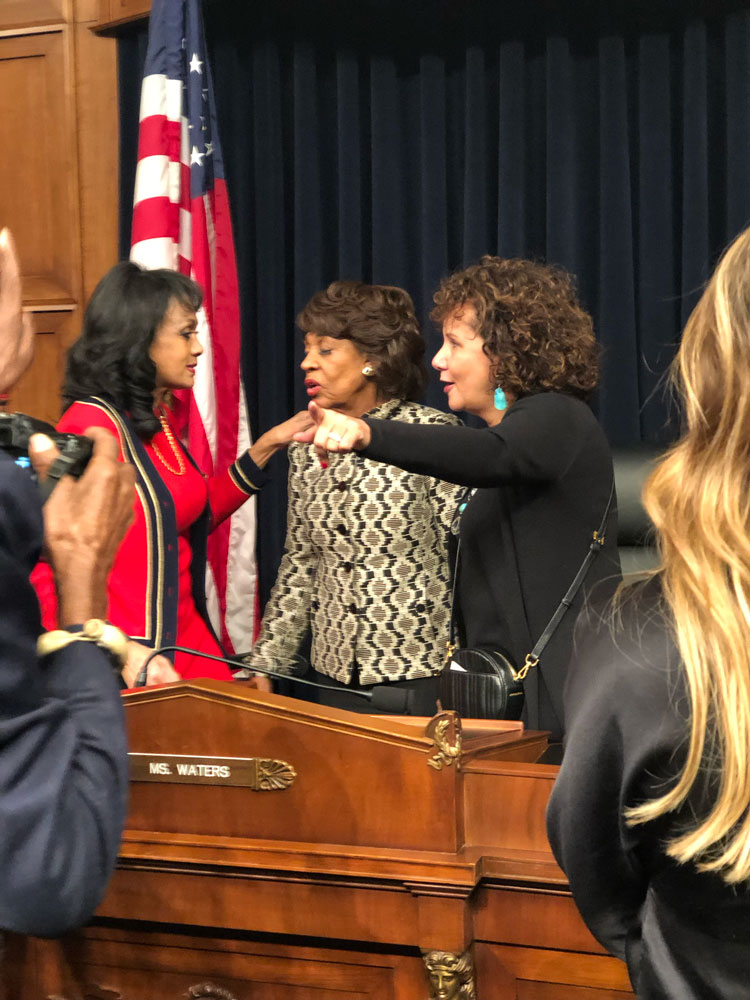
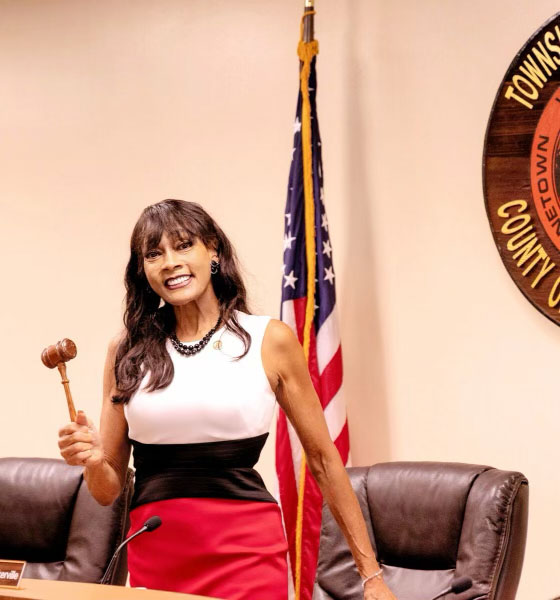
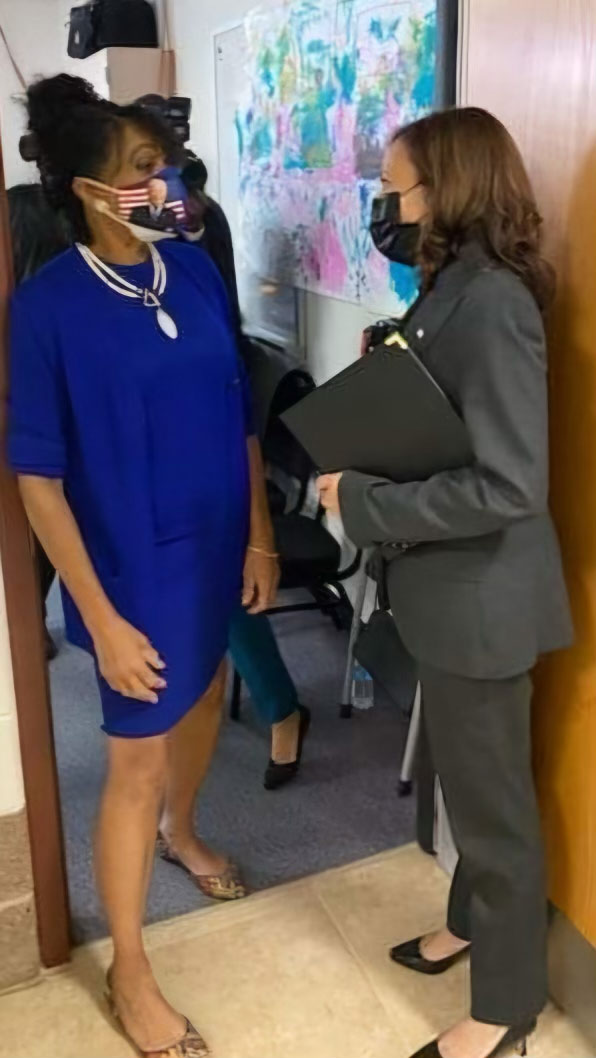
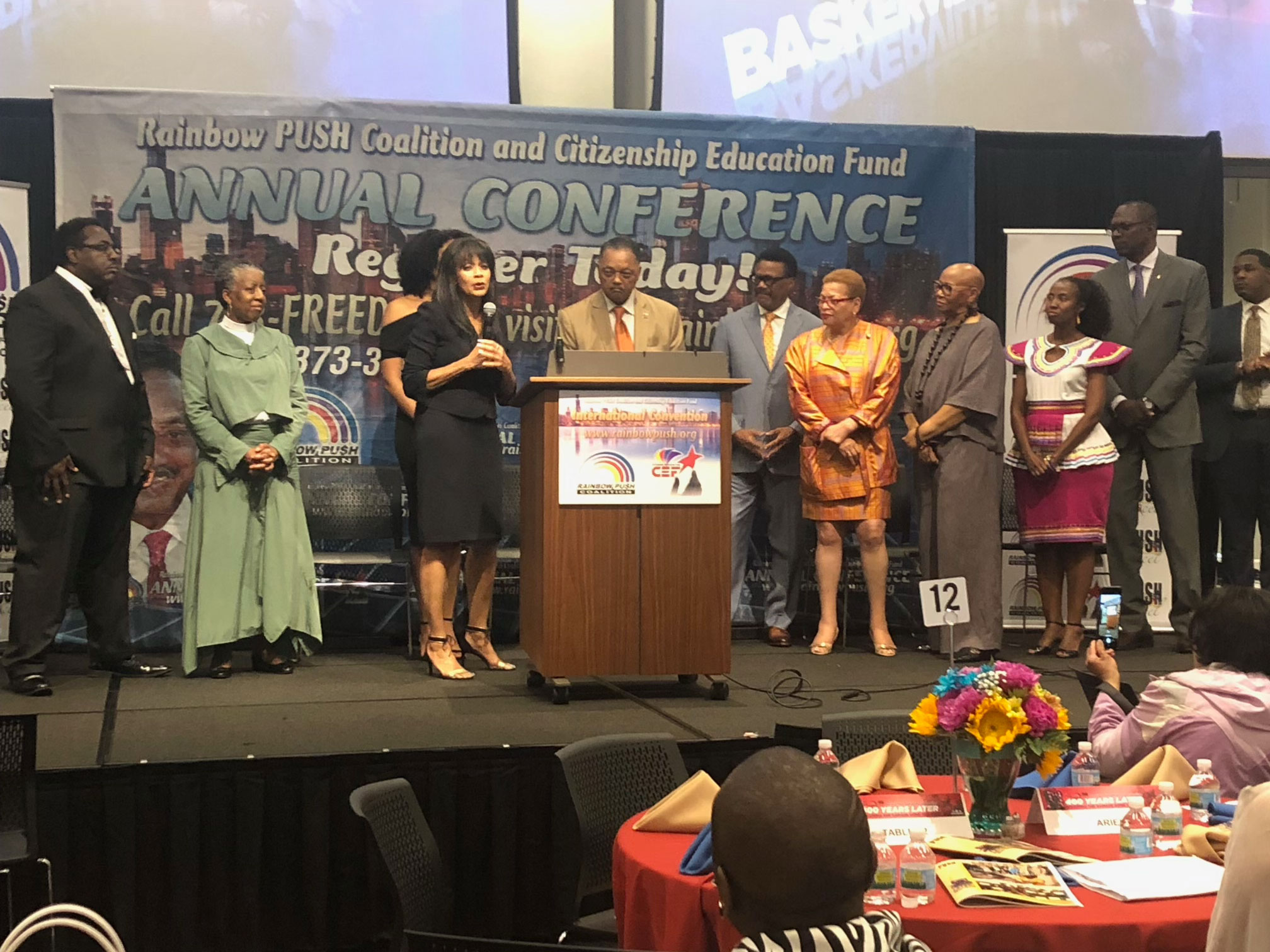
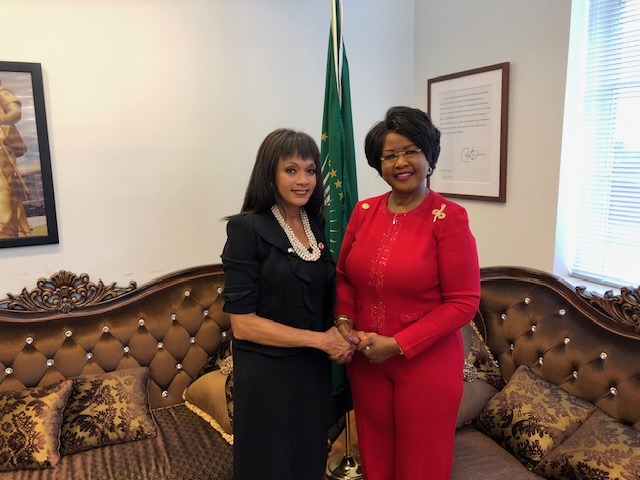
About NAFEO
Contact NAFEO
